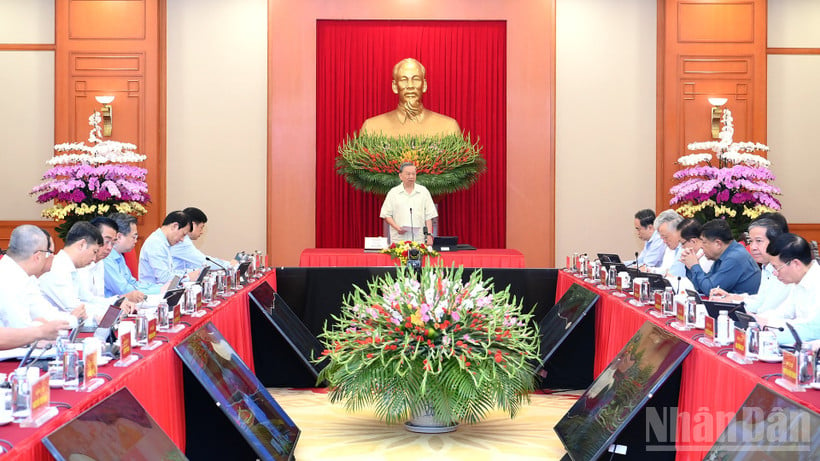
The content of Notice No. 07-TB/CQTTBCD is as follows:
On October 15, 2025, the Central Steering Committee on Science, Technology Development, Innovation and Digital Transformation (hereinafter referred to as the Steering Committee) held a conference to review the implementation of Resolution No. 57-NQ/TW dated December 22, 2024 of the Politburo in the third quarter of 2025 and key tasks and solutions for the end of 2025.
The conference was held in person at the headquarters of the Party Central Office and online to connecting points of 34 provinces and centrally-run cities.
The conference was chaired by General Secretary To Lam, Head of the Steering Committee, with the participation of Tran Thanh Man , Politburo member, Chairman of the National Assembly; Tran Cam Tu, Politburo member, Standing member of the Secretariat and other Politburo members; Secretariat members; Party Central Committee members; leaders of Party committees directly under the Central Committee, Party agencies at the Central level; ministries, ministerial-level agencies, Government agencies and centrally run provinces and cities; members of the Working Group, the National Advisory Council; representatives of leaders of institutes, schools, corporations and technology enterprises.
Based on the report of the Standing Office of the Steering Committee and the opinions of the comrades attending the Conference, General Secretary To Lam, Head of the Steering Committee, basically agreed and concluded as follows:
I- Results achieved
Acknowledging and commending the efforts and endeavors of all levels, sectors, and agencies in the political system from the central to local levels; highly appreciating the close and decisive direction of the Standing Steering Committee; the proactive, active, and responsible advice of the Standing Agency, the Working Group, and the National Advisory Council; the leading role of ministries, sectors, and localities, especially the Ministry of Public Security, in reforming administrative procedures and effectively applying the National Population Database.
The recent achievements have been achieved with the companionship, dedicated and responsible contributions of the team of businesses, experts, scientists at home and abroad, and our overseas Vietnamese.
After 9 months of implementing Resolution No. 57-NQ/TW, especially in the third quarter of 2025, with the determination of the entire political system, the work of developing science, technology, innovation and digital transformation has had positive changes, achieving important initial results.
The work of building and perfecting institutions and policies has been promoted, removing inherent bottlenecks, creating an increasingly synchronous legal corridor; digital infrastructure has been gradually shaped, especially the National Data Center No. 1 has been put into operation; digital platforms, applications, and services serving people and businesses have initially seen substantial changes. The fields of science, technology, and innovation have identified bottlenecks to focus on directing and removing.
Besides the achievements, there are still many shortcomings and limitations that need to be promptly overcome such as:
(1) Regarding national digital transformation: Some documents and regulations for digital transformation are slow to be issued; digital infrastructure at some agencies in the political system has degraded and lacks uniformity; progress in deploying national and specialized databases is slow; connection and sharing between information systems are still ineffective, failing to promote the value of data; the quality of online public services has not met expectations.
(2) Regarding science, technology and innovation: High-tech production is currently mainly processing and assembling; some key national laboratories are not operating effectively; the mechanism for handling and procedures for granting industrial property protection certificates are still inadequate; the National Initiative Portal on science, technology, innovation and digital transformation has not met the requirements of the tasks assigned by the Steering Committee, and has not properly reflected the role and stature of the National Initiative Portal; the deployment of strategic technologies is still limited and inadequate.
(3) The registration, allocation and disbursement of funds still have many shortcomings and are ineffective.
(4) The opinions discussed and presented at the Conference were mostly within the scope and functions of the industry and locality, and did not clearly demonstrate creative thinking and suggestions to jointly solve major national problems and issues.
II- Guidance and action guidelines
To thoroughly resolve the practical difficulties and challenges that are arising, and create a breakthrough in the coming time, it is required that the steering committees at all levels and sectors thoroughly grasp and take drastic actions according to the following major orientations and action principles:
1. About direction and guidance
a) Thoroughly grasp and firmly implement the new operating principle agreed upon by the recent 13th Central Conference: "Discipline comes first - Resources go together - Results are the measure".
This must be the guiding ideology throughout, in which: Discipline means strictly implementing the guiding conclusions, adhering to progress, not pushing or avoiding, and thoroughly handling overdue tasks; resources must be fully guaranteed, allocated correctly, accurately, and effectively, avoiding spreading and wasting; taking specific, substantive results and contributions to socio-economic development as measures of work efficiency, not through formal reports.
Science, technology, innovation and digital transformation must truly be the main driving force, creating new productivity and production methods, focusing on the digital economy and data economy.
b) Identifying "removing institutional bottlenecks" as the top breakthrough task. Continuing to promote the positive results in the work of building and perfecting institutions achieved in the past 9 months; focusing on completely removing obstacles in management institutions, sharing, and data exploitation to break down "separatist thinking"; institutions on intellectual property, commercialization of research results to effectively connect institutes and schools with the market; institutions on public-private partnership to strongly mobilize social resources, at the same time, there must be a strong enough mechanism to protect cadres who dare to think, dare to do, dare to take responsibility for the common good.
c) Create an innovative ecosystem, strongly unleash social resources, and identify enterprises as the center. Thoroughly grasp the viewpoint that "what the private sector can do but is not in the field where the State plays a leading role, create conditions and encourage the private sector to do".
The State plays the role of creating, leading, and ordering; enterprises are the main subjects in investing, researching, applying, and commercializing scientific and technological results, bringing the 3-House cooperation model into reality and effectiveness.
d) Take the satisfaction and trust of people and businesses as a measure of effectiveness. All digital transformation activities and all technological products must aim towards the ultimate goal of serving people and businesses.
Resolutely digitize the entire process, provide online public services according to the principle of "one-stop - one-time declaration" on the basis of connecting and interoperating data to reduce costs in terms of time and compliance for people and businesses. Strengthen network security to protect people from all types of crimes in cyberspace.
2. About the action motto
a) To realize the proposed strategic orientations, it is required to unify and vigorously implement the action motto: "Three focuses - Three publicities - One measure", specifically:
- Three focuses: (1) Timely and fully institutionalize the Steering Committee's conclusions and directions. (2) Organize drastic and effective implementation with specific products. (3) Strengthen inspection and supervision work, promptly remove difficulties and obstacles.
- Three publicities: (1) Publicize implementation progress. (2) Publicize responsibilities of organizations and individuals. (3) Publicize results for people and society to monitor.
- One measure: Taking people's living standards and trust as the most effective measure.
b) To ensure the implementation of the above motto, there must be a fundamental change in the leadership, direction and management methods; shifting from management based on periodic reports to management based on data updated in real time, ensuring high transparency and accountability. Ministries, branches and localities must seriously:
- Use the Information System for monitoring and evaluating the implementation of Resolution No. 57-NQ/TW as an essential tool in daily direction and management to monitor progress, detect bottlenecks early and support timely and effective decision making.
- If necessary, establish specialized, flexible working groups with sufficient authority to coordinate inter-sectoral activities, urge and directly resolve difficulties and obstacles in the implementation process.
III- Key tasks
1. Agencies and units, especially their leaders, must set an example and be responsible to the Party, the State and the People for the implementation of tasks, ensuring 100% completion of tasks on time, meeting practical requirements and bringing about efficiency. Data must be "correct, sufficient, clean, alive, unified and shared". Public services must satisfy people and businesses in a substantive way, avoiding formalities. The numbers in the reports are very good, but the reality is different. Network security must strictly comply with technical standards and regulations.
2. Central Party agencies focus on leading and directing the effective implementation of the Digital Transformation Project in Party agencies according to the set roadmap.
3. The Supreme People's Court is a pioneer in building a modern, transparent judiciary based on digital technology, promptly issuing a Resolution of the Council of Judges on litigation procedures in the digital environment, implementing the Project to digitize all case files, and moving towards building a centralized, intelligent digital precedent database.
4. The Supreme People's Procuracy promotes digital transformation to improve the quality of prosecution and supervision of judicial activities.
5. Government Party Committee
a) Focus on directing and finding solutions to completely resolve the backlog of legal documents; ensure that 100% of decrees and circulars guiding new laws related to science, technology, innovation and digital transformation are issued and take effect no later than March 31, 2026.
b) Directing the implementation of the National Public Service Portal as a real "One-stop shop", strictly enforcing the principle that people and businesses "only have to provide information once", ending the situation of requiring re-submission of documents and data that state agencies already have or can share with each other.
6. The Party Committee of the National Assembly directs the implementation of the National Assembly's digital transformation project; directs the concentration of resources to upgrade the National Assembly's information technology infrastructure and data center. Directs the organization of explanation and question sessions and thematic supervision delegations on the implementation of Resolution No. 57-NQ/TW.
The monitoring content must focus on the three most core issues: (i) Progress and quality of building national databases. (ii) Efficiency of disbursement and use of state budget resources. (iii) Substantive results of commercialization of scientific and technological products and the 3-House model.
7. The Party Committee of the Fatherland Front and Central organizations direct the implementation.
Project on digital transformation in the agencies of the Vietnam Fatherland Front and socio-political organizations. Directing the organization of independent and substantive social monitoring and criticism programs on the quality of scientific and technological research and innovation. This monitoring channel must become an important source of information, reflecting the voice of the people so that state agencies can adjust policies and actions.
8. The Ministry of Justice shall preside over and coordinate with the Government Office, the Ministry of Home Affairs and relevant agencies to urgently review and re-evaluate all administrative procedures at the provincial and communal levels to propose plans for substantial and effective reduction and simplification, and report to competent authorities for consideration and decision. To be completed before November 15, 2025 .
9. For ministries, central and local agencies
Take full responsibility for the progress of implementing assigned tasks on science and technology development, innovation and digital transformation within the scope of management functions of the ministry, agency and locality according to the detailed tasks in the attached Appendix.
IV- On implementation organization
1. Requesting the members of the Steering Committee, ministers, heads of sectors, secretaries, chairmen of provincial and communal People's Committees, and leaders of departments and divisions to continue to uphold the spirit of responsibility, pioneering and exemplary; fully and deeply understand the requirements and tasks of developing science, technology, innovation and national digital transformation for the destiny of the country.
2. Must be resolute in leadership and management; do not accept “term thinking”, “holding on to local interests”, not daring to think, not daring to do, not daring to make breakthroughs. Anyone caught up in these situations and not making changes must be promptly replaced, not slowing down the country’s development process. The task ahead requires each member of the Steering Committee, each leader at all levels and in all sectors to continue to uphold the pioneering and exemplary spirit, truly “talk less - do more - resolutely - effectively”. Resolutely fight against formalism, achievement disease, stagnation, pushing, and avoiding responsibility; turn every challenge into an opportunity, turn every difficulty into a driving force for innovation and creativity.
3. Immediately after this Conference, all levels, sectors, agencies and units are assigned to urgently develop plans and organize the serious and effective implementation of key tasks and solutions according to the functions and tasks assigned in this Notice, and send them to the Party Central Office - Standing Agency of the Steering Committee before October 18, 2025. It is required to maintain discipline, unleash resources, create breakthroughs right from the last months of 2025, creating a solid momentum for 2026 and for the entire term.
Appendix
TASKS ASSIGNED TO MINISTRIES, CENTRAL AND LOCAL AGENCIES
(Attached to Notice No. 07-TB/CQTTBCD, dated October 15, 2025 of the Standing Office of the Central Steering Committee on science, technology development, innovation and digital transformation)
1. On direction and management
a) Central and local agencies: (1) Synchronously and resolutely implement tasks according to Resolution No. 57-NQ/TW and programs and plans of the Steering Committee [1] , the National Assembly, the Government, the Fatherland Front and socio-political organizations. (2) Proactively review, evaluate and perfect mechanisms and policies to ensure progress and actual effectiveness. (3) Strictly implement the reception and handling of feedback, recommendations, initiatives and solutions [2] as assigned.
b) Ministries, central and local agencies (down to commune and ward levels) must regularly and promptly report implementation results with evidence on the Monitoring and Evaluation System of Resolution No. 57-NQ/TW, and at the same time exploit data to serve direction and administration [3] .
c) The Central Party Office presides over and coordinates with agencies in the political system to establish information and data to serve leadership, direction, and management of socio-economics, science, technology, innovation, and digital transformation based on real-time data.
2. On building and perfecting institutions and policies for science, technology, innovation and digital transformation
a) The Government Party Committee closely coordinates with the National Assembly Party Committee to focus on directing the completion of institutions related to Resolution No. 57-NQ/TW, focusing first on draft laws submitted to the National Assembly for consideration and approval at the 10th Session.
b) The assigned ministries and branches shall preside over: (1) Urgently develop and submit for promulgation legal documents guiding the implementation of laws and resolutions passed by the National Assembly, ensuring consistency and taking effect at the same time as the law. (2) Develop and submit to competent authorities for promulgation of regulatory documents assigned in Regulation No. 05-QD/BCĐTW, dated August 27, 2025 of the Central Steering Committee. (3) Urgently develop and complete draft laws related to science, technology, innovation and digital transformation (Law on Digital Transformation, Law on Artificial Intelligence, Law on Intellectual Property (amended)...) to submit to the National Assembly for consideration and approval at the 10th Session according to the National Assembly's legislative program.
c) The Ministry of Science and Technology shall submit to the Prime Minister for promulgation a Directive on promoting the timely and effective implementation of assigned tasks and handling responsibilities of ministries, branches and localities that are behind schedule. To be completed in October 2025 .
d) The Ministry of Public Security shall urgently submit to the Government and the Prime Minister for promulgation: (1) Decree on mandatory connection and sharing of data in the political system. (2) Decision on Architectural Framework, Governance Framework and National Data Dictionary. To be promulgated before October 20, 2025 .
d) The Ministry of Science and Technology shall preside over and coordinate with the Ministry of Foreign Affairs, the Central Party Office and relevant agencies to monitor and urge the implementation of commitments, agreements and international cooperation projects on science, technology, innovation and digital transformation on the Monitoring System of Resolution No. 57-NQ/TW. To be completed in November 2025 .
3. Some key tasks on promoting national digital transformation
a) Ministries, central and local agencies: Focus on completing digital transformation tasks according to Plan No. 02-KH/BCĐTW, Notice No. 06-TB/BCĐTW (information security, network security, data security), Notice No. 44-TB/TGV, dated September 12, 2025 (data creation, connection, sharing) and Notice No. 46-TB/TGV, dated September 30, 2025 (interconnected digital transformation in the political system), ensuring efficiency and progress.
b) Ministries, branches and localities shall preside over and coordinate with the Government Office and the Ministry of Public Security to review and restructure the process of online public services with a low rate of online records and a high rate of additions and corrections, ensuring that people and businesses "only declare information once".
c) On digitalization: Ministries and branches:
(1) Deploy the development of shared platforms and software from the central to local levels; provide detailed and specific instructions on classifying records and documents that need to be digitized, and determine the digitization goal associated with electronic processes or just for storage so that localities can implement it.
(2) The Government Office standardizes the names of dossier components; at the same time, urges ministries and branches to restructure the process of reducing dossier components based on electronic data and reusing administrative procedure results.
(3) The Ministry of Finance shall preside over and coordinate with the Ministry of Science and Technology, the Ministry of Home Affairs and relevant ministries and branches to issue guidelines on economic-technical norms or construction cost estimates, and create specialized databases by field.
(4) The Ministry of Science and Technology shall preside over and coordinate with the Ministry of Home Affairs, the Ministry of Public Security, the Government Office, and the Central Party Office to issue a unified document guiding digitalization for agencies in the political system to implement. To be completed in November 2025 .
d) Provinces and centrally run cities
- Ensure sufficient and timely funding to upgrade technical infrastructure, equipment and information security and data security solutions according to the Project and Digital Transformation Project in Party agencies, to be completed in the fourth quarter of 2025 .
- Direct the review and ensure the headquarters, equipment, human resources and network infrastructure to serve the settlement of administrative procedures according to Decree No. 118/2025/ND-CP; organize a commune-level working group to support the completion of conditions for the Public Administration Service Center to operate effectively. To be completed in October 2025 .
d) Ministry of Public Security
- Urgently complete technical infrastructure, ensure conditions for transferring, receiving and operating information technology systems of ministries, branches and localities at the National Data Center. Complete by December 2025 at the latest .
- Preside over and coordinate with relevant agencies to issue specific and unified guidance documents on the order and procedures for decentralizing the exploitation of the National Population Database for officials at the departments receiving and returning administrative procedure results. To be completed in October 2025 .
e) The Ministry of Justice shall promptly issue unified regulations on the level of online public services in the field of certification; ensure connectivity and fix information synchronization errors between the Civil Status Management Information System and the Local Administrative Procedures Information System. To be completed by October 2025 .
g) The Ministry of Science and Technology shall promptly submit to competent authorities for promulgation the Information System Architecture for handling administrative procedures at ministerial and provincial levels. To be completed in October 2025 .
h) The Government Office shall carry out an objective and substantive assessment of the satisfaction level of people and businesses with government procedures and online public services, as a basis for evaluating agencies and businesses providing services, reporting monthly and updating on the Monitoring System of Resolution No. 57-NQ/TW. To be completed in December 2025 .
4. Some key tasks on science, technology and innovation development
a) Regarding promoting the 3-House Cooperation Model; High-tech Park; Smart City : Ministries, central and local agencies focus on completing the assigned tasks in Conclusion Notice No. 45-TB/TGV to ensure efficiency, progress, and set goals. In which:
- Major universities (Hanoi National University, Ho Chi Minh City National University, Hanoi University of Science and Technology, Danang University) urgently develop action plans for implementation (to be completed in November 2025).
- 3 localities (Hanoi, Ho Chi Minh City, Da Nang City) focus on immediately implementing tasks in 2025 on developing high-tech zones and smart cities.
- Specialized ministries (Science and Technology, Construction, Education and Training...) are primarily responsible for promptly completing institutions, standards and guidelines, and supporting implementation.
b) Regarding human resource development : Ministry of Education and Training: (i) Research and prioritize human resource training for strategic technology industries, support lecturers and high-quality human resources. (ii) Issue guidelines for measuring training program output standards. (iii) Promote international cooperation, create conditions for students and lecturers to participate and support educational institutions to access international cooperation projects on digital transformation.
c) On strategic technology development
The Ministry of Science and Technology shall preside over and coordinate with relevant ministries, branches and localities to submit to the Prime Minister a program to deploy priority strategic technology product groups to be deployed immediately in 2025, to be completed before October 30, 2025, and at the same time study and implement the following contents:
(i) Research and develop a methodology system and process to determine the list of strategic technology and product groups, ensuring that it is consistent with national strengths, resources, potentials, and trends in science, technology, global supply value chains, and geopolitical factors. To be completed by October 2025 .
(ii) It is necessary to identify the 3-House cooperation model as the main implementation method to mobilize the overall strength of the ecosystem, with the core being experts and scientists. This model is concretized by a public-private partnership mechanism and flexible capital matching, in which:
(1) For technologies with high market potential and of interest to businesses : Businesses play the main investment role (at least 50%), the State participates in support through incentives, technological innovation, market development and funding for schools/institutes to cooperate in research, to promote commercialization and expand technology application.
(2) For the remaining technologies : State funding plays a leading role, sponsoring cooperation between schools/institutes and enterprises to master strategic, potential but high-risk technologies; enterprises contribute at least 20% of counterpart funding, orienting applications and preparing the foundation for future cutting-edge technologies.
(iii) Consider adding “Edge AI processing technology and smart devices” to the list of strategic technology products, under the Strategic Technology Group “Artificial Intelligence, Digital Twins, Virtual Reality/Augmented Reality”. To be completed in October 2025 .
5. On ensuring funding for science, technology, innovation, and digital transformation
a) Ministry of Science and Technology:
(1) Preside over and coordinate with ministries, branches and localities to urgently review the state budget estimates for 2025 - 2026 according to Resolution No. 57-NQ/TW and Plan No. 02 KH/BCĐTW, synthesize proposals and send them to the Ministry of Finance to ensure resources are deployed promptly and in accordance with regulations.
(2) Preside and coordinate with the Ministry of Finance, the Ministry of Public Security and relevant agencies to provide guidance on expenditure items in the following areas: (i) Science, technology, innovation. (ii) Digital transformation to ensure consistency and consistency in registration, allocation and settlement of funds, in which ministries managing the field must detail the requirements on spending priorities and requirements to serve the assessment work, to be completed by November 2025 .
(3) Preside over and coordinate with the Ministry of Finance to develop and submit to the Government for promulgation an ordering mechanism for enterprises, institutes, and schools to perform scientific, technological, innovation, and digital transformation tasks to encourage innovation, to be completed by December 2025 .
b) Ministries, branches and localities shall, based on current laws; current situation and development requirements; closely follow the Party's policies and instructions of the sector management ministries (Ministry of Science and Technology, Ministry of Finance, Ministry of Public Security, Ministry of Home Affairs), allocate funds and implement them in a manner that is legal, effective, strict and without duplication.
c) Request the Ministry of Finance to preside over and coordinate with relevant agencies to urgently research, develop, and submit to competent authorities to promulgate mechanisms, policies, and solutions to promote a large-scale, flexible financial ecosystem for science, technology, and innovation according to the assigned tasks in Conclusion Notice No. 45-TB/TGV, dated September 30, 2025.
----------------
[1] Plan No. 01-KH/BCĐTW, dated June 2, 2025 and Plan No. 02-KH/BCĐTW, dated June 19, 2025
[2] Regulation No. 03-QC/BCĐTW, dated June 23, 2025.
[3] Regulation No. 02-QC/BCĐTW, dated June 10, 2025.
Source: https://nhandan.vn/thong-bao-ket-luan-cua-tong-bi-thu-to-lam-tai-hoi-nghi-so-ket-tinh-hinh-trien-khai-thuc-hien-nghi-quyet-so-57-nqtw-cua-bo-chinh-tri-post915748.html


![[Photo] Conference of the Government Party Committee Standing Committee and the National Assembly Party Committee Standing Committee on the 10th Session, 15th National Assembly](https://vphoto.vietnam.vn/thumb/1200x675/vietnam/resource/IMAGE/2025/10/15/1760543205375_dsc-7128-jpg.webp)


![[Photo] General Secretary To Lam attends the 18th Hanoi Party Congress, term 2025-2030](https://vphoto.vietnam.vn/thumb/1200x675/vietnam/resource/IMAGE/2025/10/16/1760581023342_cover-0367-jpg.webp)


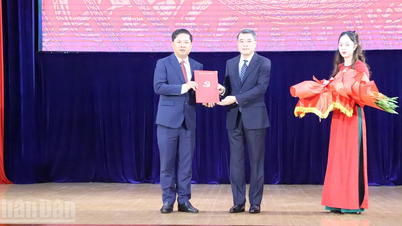
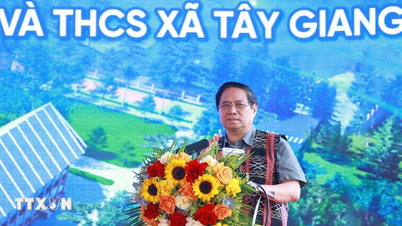

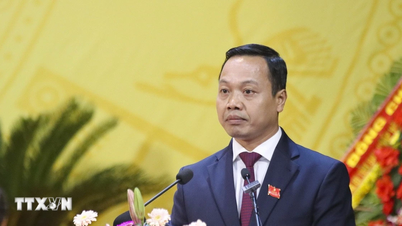

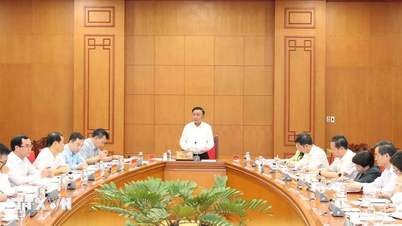
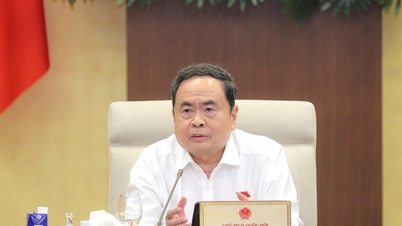





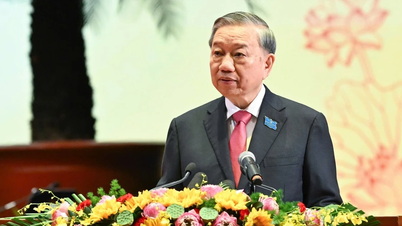
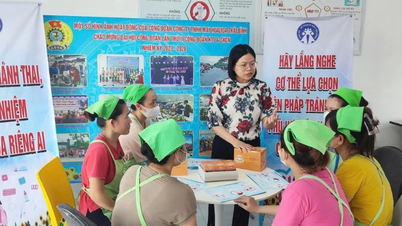

![[Video] Expected to issue digital diplomas and certificates at the same time as paper diplomas](https://vphoto.vietnam.vn/thumb/402x226/vietnam/resource/IMAGE/2025/10/16/1760601732180_720-jpg.webp)
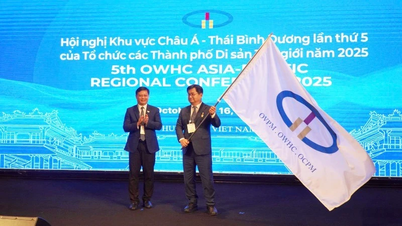
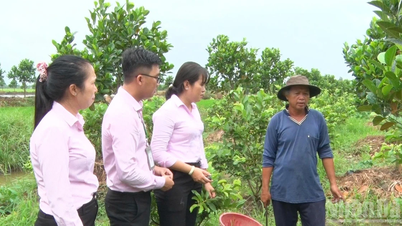






![[Video] TripAdvisor honors many famous attractions of Ninh Binh](https://vphoto.vietnam.vn/thumb/402x226/vietnam/resource/IMAGE/2025/10/16/1760574721908_vinh-danh-ninh-binh-7368-jpg.webp)

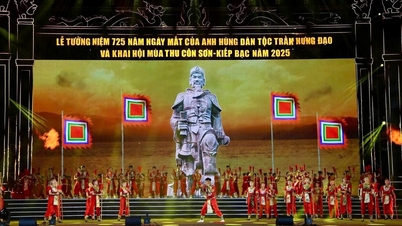






























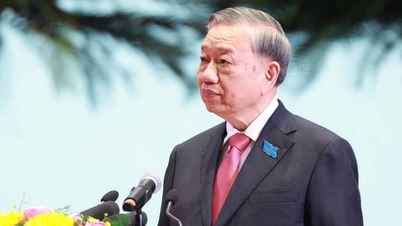

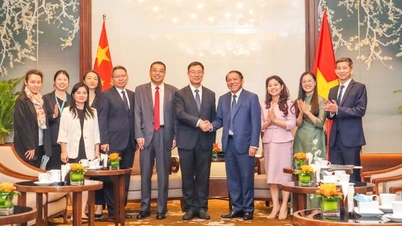

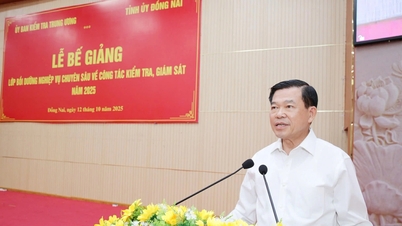



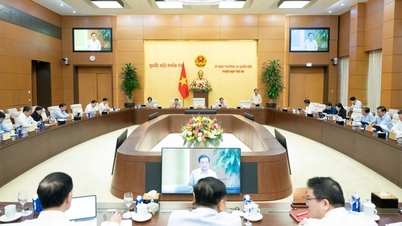
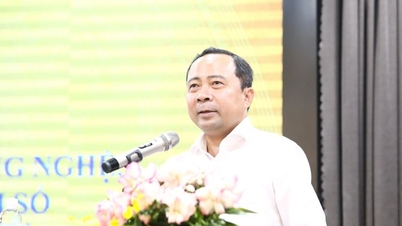

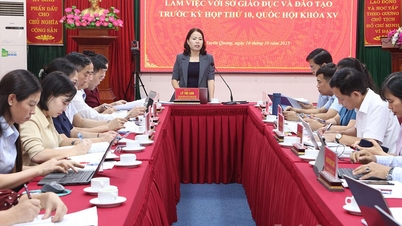



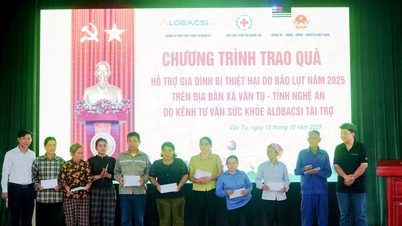

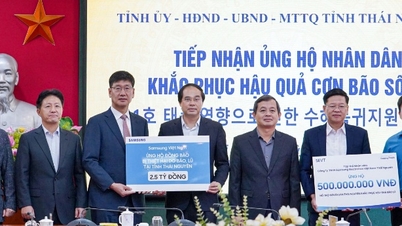

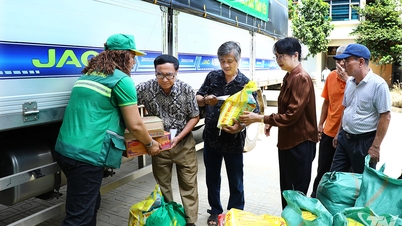















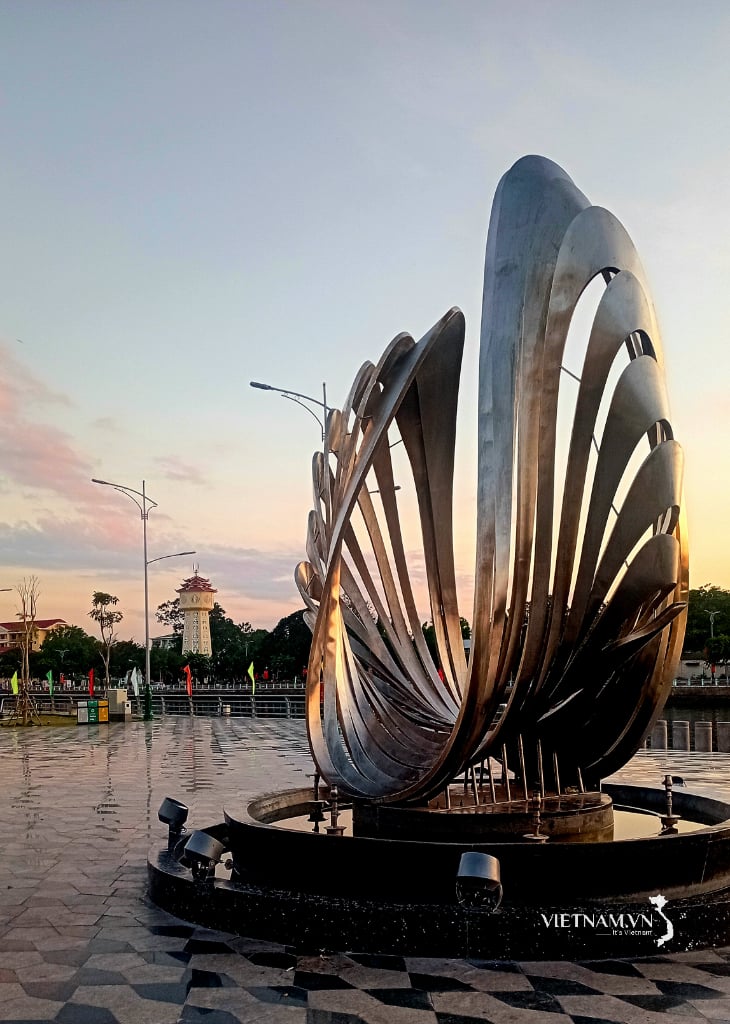

Comment (0)